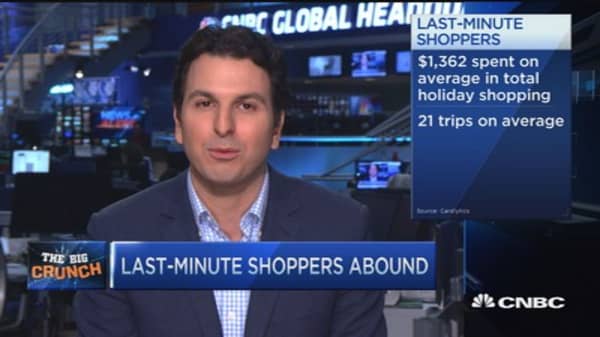The last week before Christmas saw a 12 percent increase in spending in stores, and a 27 percent increase in online spending.
The procrastinators spend more than the early birds. Last year, the late spenders averaged $1,362 per person, which was almost a full $100 more than the early birds, who spent only $1,269 each.
The data comes from Cardlytics — a purchase-based data intelligence platform. Its partners include Bank of America and Lloyds Banking Group. The company has transaction data from over 85 million U.S. bank accounts, allowing them to deliver accurate information to retailers about customer behavior.
As we wrote about this last year, this procrastinator group is valuable to advertisers because the holiday season is getting stretched longer from both sides. It starts earlier each year. A spokesperson from fashion site Polyvore, now owned by Yahoo, said searches for holiday gifts started around Sept. 8 this year.
And despite the earlier start date, there is more spending weighted toward the end of the shopping season. We see that in the overall data points, while Black Friday sales drop, total spending goes up. This dynamic stretching the Christmas retail season is changing how stores advertise to their potential customers.
"Retailers should run steady marketing campaigns starting before Thanksgiving and extending right up to Christmas," said Dani Cushion, CMO of Cardlytics. "A holiday marketing campaign that is too short leaves potential dollars on the table."
She also pointed out some basic strategies that companies should remember for those procrastinators, things to make their lives easier: "Retailers should consider promoting shipping guarantees and simple gift guides to help last minute shoppers quickly and easily finish off their list."








